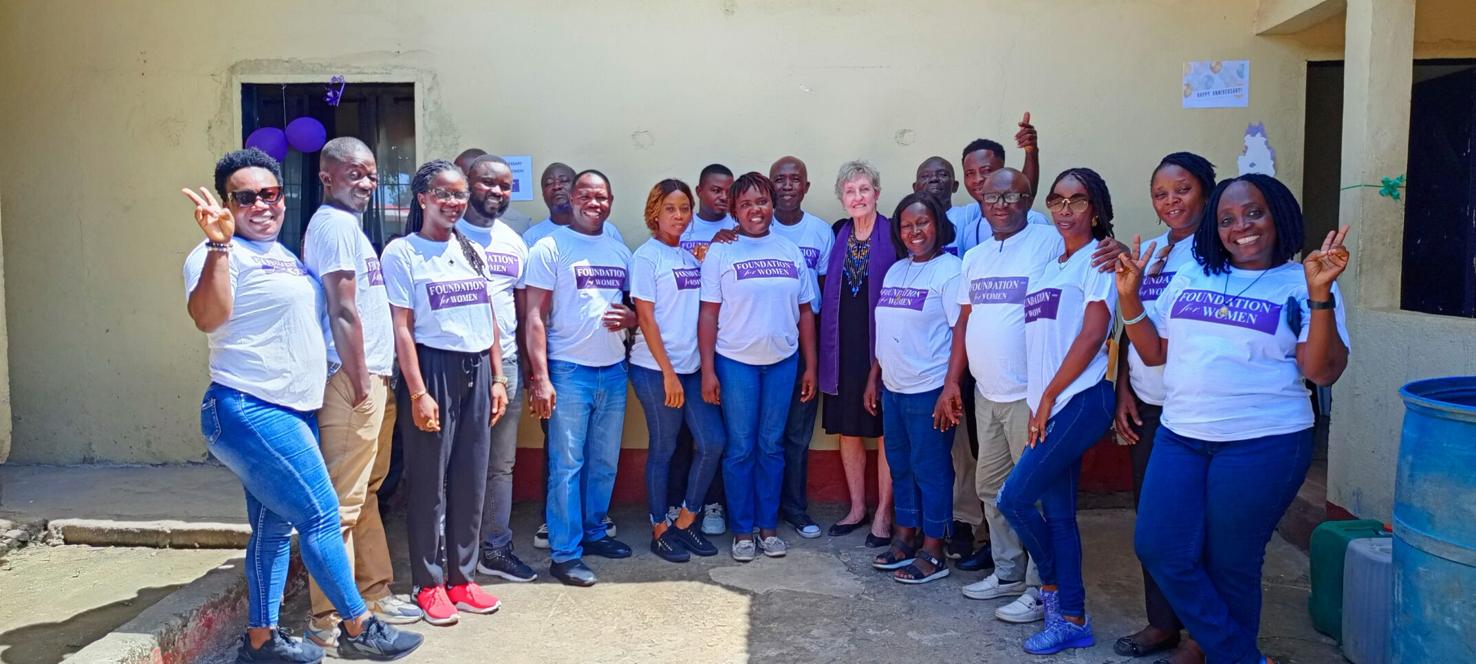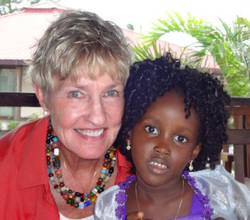“Whenever I’m asked about the Foundation for Women, I often say that it was a divine idea I was fortunate enough to hear and act upon,” Lindholm remarked.
Her journey began with a realization during her travels around the world. Witnessing widespread poverty, particularly affecting women and children, deeply moved her. This experience led her to delve into microfinance, recognizing its potential to uplift communities.
“In 1995, I discovered that many impoverished women, living on less than a dollar a day, were eager to improve their lives if given access to capital,” Lindholm recalled. “That revelation set me on the path of microfinance, and I’ve been committed to it ever since.”
However, FFW’s inception traces back to Lindholm’s first microfinance program in India in the late 1990s. Over the years, the foundation expanded its reach to Zambia, South Africa, Niger, and eventually Liberia.
The core principle of FFW’s microfinance approach is empowerment. “We offer a hand up, not a handout,” Lindholm emphasized. “By providing access to capital and believing in the potential of these women, we stand beside them, encouraging their entrepreneurial spirit.”
Reflecting on FFW’s impact, Lindholm proudly said: “From empowering 100 women in India to over 1.5 million globally, we estimate that we’ve positively impacted the lives of more than 25 million people worldwide. Every loan we provide benefits not just the borrower but approximately ten others in their community.”
She also highlighted the impressive repayment rate among women borrowers, exceeding 95% globally. “This statistic underscores the determination and responsibility these women exhibit to better their families’ lives,” she noted.
Looking forward, FFW has ambitious plans for Liberia. A new program, “Safe Conversation”, aims to foster dialogue and reduce tribalism. “Communication is key to understanding and unity,” Lindholm explained. “We’re committed to equipping Liberians with the tools to communicate effectively and peacefully.”
Additionally, FFW is spearheading a transformative agriculture project in Bong County. This initiative seeks to revolutionize agriculture, particularly rice production, ensuring food security for Liberia in the coming years.
In closing, Lindholm expressed her gratitude and admiration for her team and the resilience of the Liberian people. “Working in Liberia has been a blessing. The hope, resilience, and tenacity displayed by the Liberian community are truly remarkable,” she said.
With a clear vision and unwavering commitment, the Foundation for Women continues to pave the way for economic empowerment and positive change in Liberia and beyond.
Amelia B. Tamba, Micro-loan Manager at Foundation For Women, expressed her heartfelt gratitude to be a part of the anniversary celebration after working with the organization for the past twelve years.
“I am very proud to be a part of such a great family,” she said. “It is very exciting working with women as a whole and with the work that we do; you have to have the passion to work with women because there are different kinds of women: women with hot tempers, women with low tempers, and women who don’t listen.”
She added that before one can work with women, they should be willing to work with them, and she finds it very interesting to have worked with women for the past twelve years without getting tired. “I am still willing to work with them because I always enjoy working with them. Though there are lots of challenges, we can overcome the challenges,” Tamba said.
According to her, in the practice of lending money, a common challenge is the repayment of loans. “To get them to pay the loan back sometimes, we have to pet them, even re-loan them, and reschedule the loan so that they will get the money to pay for the current loan and the past loan.
Sometimes, if they refuse to accept being re-loaned, we can reschedule the loan. So with that, we help them make those plans to see how they can pay the loan.”
T. Magnus Gayflor, Sr., Director of the Foundation for Women Liberia, said FFW’s prospects for continuance on Liberia were slim because Ebola had struck the Liberian economy and affected many institutions.
“So when we joined the institution, repayment of loans was slow and clients were scattered, so we started to wonder, what is the prospect of this institution continuing when things are like this,” he said. “So, some of my colleagues and I sat down and brainstormed and gave advice to the management. One of the pieces of advice was to change the location of the institution. We were located in the airfield community that was quite friendly and far from the market. We needed to be market-focused, so we advised them to move to Red Light, in Paynesville.”
According to him, FFW Liberia is resilient and has been able to keep its head above the water. “One thing that has kept us committed here is the incentive provided by the management, which is that we are entitled to loans. We use very low-interest-rate loans that we use to develop ourselves.”
“So almost every one of us here has done something in our lives from the loans that we have acquired from the institution, and everyone sees the institution as his or her own, so that has increased our loyalty to the institution,” he added.
By Claudius T. Greene, Jr. Read the full article online at The Daily Observer.



 RSS Feed
RSS Feed